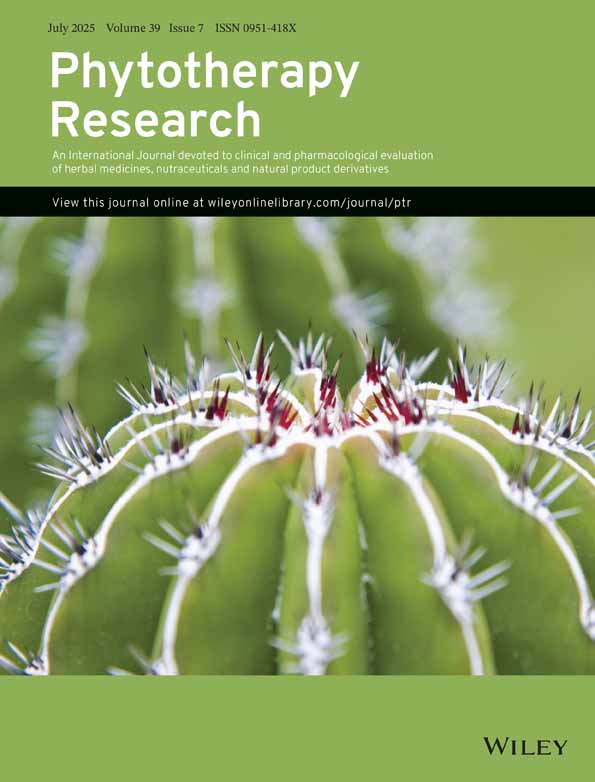Effect of Psidium guajava leaves on some aspects of the central nervous system in mice
Abstract
An Erratum has been published for this article in Phytotherapy Research 14(5) 2000, 400.
The present work examines the effects of hexane, ethyl acetate and methanol extracts of Psidium guajava leaves (20,100,500 and 1250 mg/kg) on the central nervous system in mice. The three extracts exhibited mostly dose-dependent antinociceptive effects in chemical and thermal tests of analgesia. The extracts also produced dose-dependent prolongation of pentobarbitone-induced sleeping time. However, they had variable and mostly non-significant effects on locomotor coordination, locomotor activity or exploration. In the pharmacological tests used, the ethyl acetate extract seemed to be the most active, followed by the hexane and then the methanol extracts. Copyright © 2000 John Wiley & Sons, Ltd.




